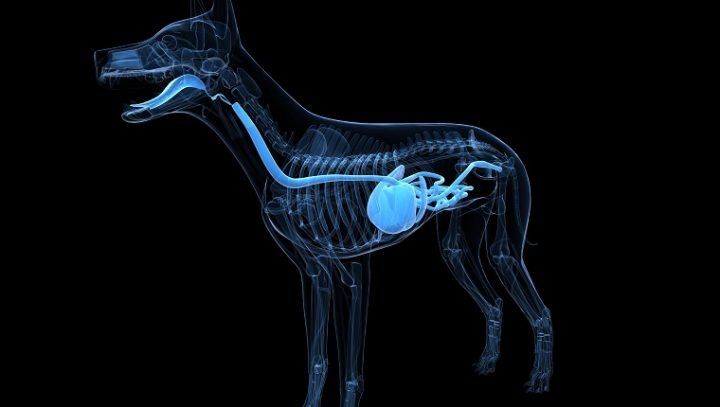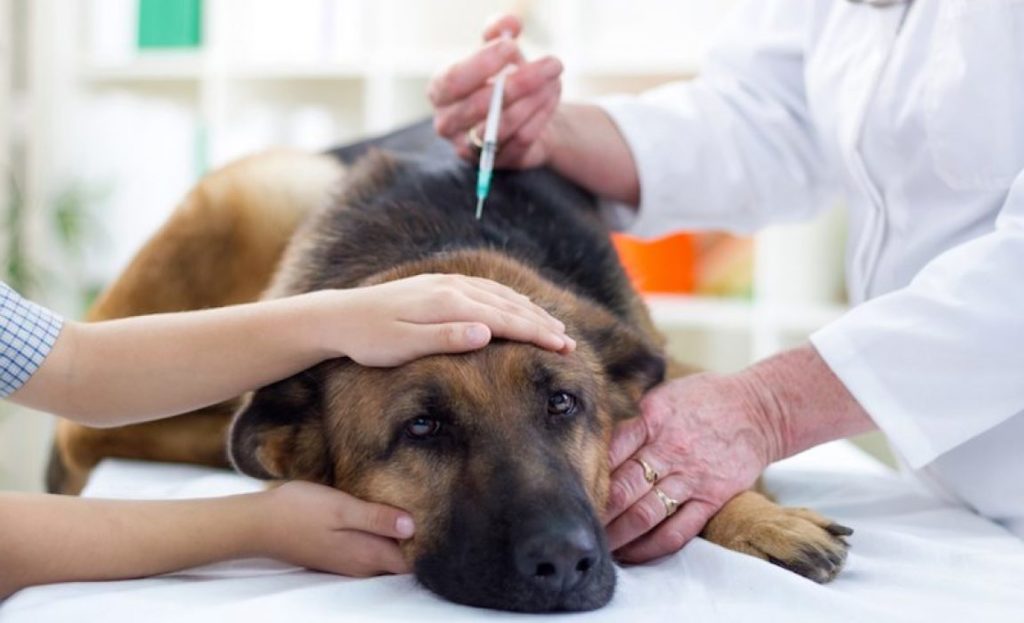Colitis in dogs is the inflammation of the colon in dogs, which is also known as large bowel diarrhea. Dogs with this circumstance may have increased frequency of defecation as well as blood or mucus in their stools.
Most of the nutrients have been absorbed by the time food reaches a dog’s colon, but any remaining undigested food is further digested by a large, natural bacterial population within the colon. When the colon is inflamed and its cells aren’t operating properly, water isn’t absorbed effectively, and it’s ejected as diarrhea.
Table of Contents
Different types of Colitis in Dog
In dogs, there are two types of colitis:
Acute colitis is characterized by a rapid appearance of symptoms that persist only a few days. This is something we see a lot in dogs, and it normally goes away on its own. Chronic colitis dogs are usually healthy and appear normal, but they have soft stools that may contain blood or mucus.

Chronic colitis lasts for a prolonged period of time, ranging from weeks to months. Your dog will experience several episodes of symptoms that come and go, or symptoms that simply do not go away if he has chronic colitis. Chronic colitis in dogs, in any case, necessitates a medical examination. They may also appear to be struggling to urinate. Vomiting is also possible, but it is uncommon.
Dealing with colitis in your dog can be a difficult and unpleasant experience. Consult your veterinarian about treatment and management options if you are concerned about your dog’s risk of colitis or if they have persistent diarrhea.
Causes of Colitis in Dog
Several factors can cause colitis, including the temperament of the breed, inflammatory bowel illness, parasitic infection, dietary intolerances or allergies, stress, and bacterial infection
Signs and Symptoms of Colitis in Dogs
The symptoms of canine colitis differ depending on whether your dog has chronic or acute colitis.
Colitis symptoms in dogs include urgency in needing to go to the bathroom • Soft or watery feces • Straining or pain when defecating • More frequent, smaller-volume bowel motions • Stool containing blood or mucous.
Diagnosis of Colitis in Dogs
The current clinical tests can help confirm or rule out a bacterial or parasite infection or clostridial colitis diagnosis: fecal smears to check for bacterial or parasitic illness, fecal flotation to check for parasites, and bacterial culture. Further diagnostic tests will be required if clinical indications persist or deteriorate on this regimen. The following diagnostic procedures can be carried out: abdominal radiographs to examine the gastrointestinal system, ultrasonography, colonoscopy, hematology studies – complete blood count and biochemical profile.

Treatment of Colitis in Dogs
- Diets
A bland diet consists of boiling chicken, cooked hamburger, or fully cooked eggs, as well as white or brown rice or white or sweet potatoes.
- Medication
Prebiotics aid in the maintenance of a healthy bacterial population in the colon, which aids in the resolution of canine diarrhea. Probiotics are a live bacteria culture that helps colonize the gastrointestinal system and promotes a healthy bacterial balance. This also aids in the relief of diarrhea.
Because of its propensity to decrease cell-mediated immunity, metronidazole can be given to your pet. Glucocorticoids can be used therapeutically to reduce the immunological response and inflammation in your dog. Because of its propensity to limit excretion, reduce intestinal secretion, and promote water absorption, loperamide may be administered. Only if infectious colitis has been ruled out will this be employed.

Management of Colitis in Dogs
Chronic colitis in dogs may not be curable based on the underlying reason, however, it may typically be managed and controlled with the right treatment strategy. In most cases of acute colitis, full healing takes only a few days. Chronic colitis takes longer to treat, necessitating more diagnostics and trials of various drugs and diets to see what works best. Unfortunately, canines with a hereditary predisposition to the disease have a poor prognosis.




